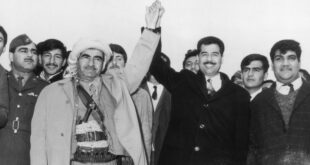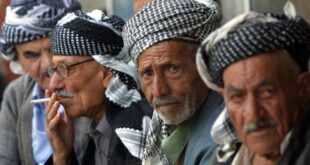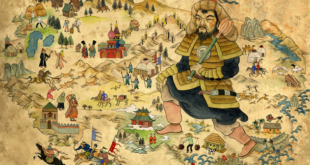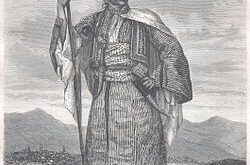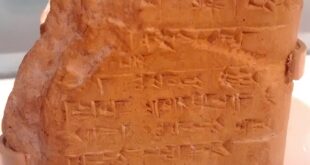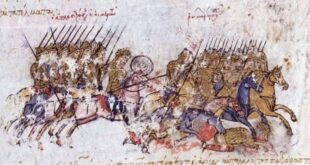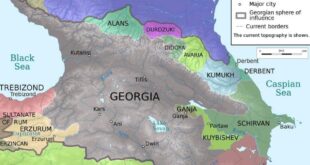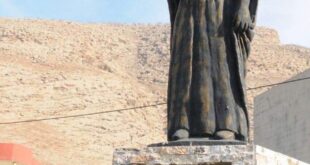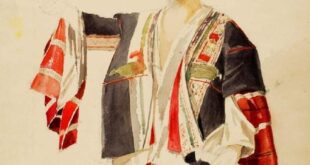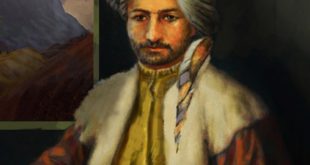IMAGE SOURCE,HULTON ARCHIVE Image caption, A peace deal agreed by the KDP and Iraq’s government in 1970 collapsed four years later Kurds make up an estimated 15% to 20% of Iraq’s population. They have historically enjoyed more national rights than Kurds living in neighbouring states, but also faced brutal repression. …
Read More »Who are the Kurds
Between 25 and 35 million Kurds inhabit a mountainous region straddling the borders of Turkey, Iraq, Syria, Iran and Armenia. They make up the fourth-largest ethnic group in the Middle East, but they have never obtained a permanent nation state. Where do they come from? The Kurds are one of …
Read More »Kurdish principalities after the Mongol period
After the Mongol period, Kurds established several independent states or principalities such as Ardalan, Badinan, Baban, Soran, Hakkari and Badlis. A comprehensive history of these states and their relationship with their neighbors is given in the famous textbook of Sharafnama written by Prince Sharaf al-Din Biltisi in 1597. The most prominent among these was Ardalan which was established in the early 14th century. The state …
Read More »History of the Kurds
Kurdish people, , Gelê Kurd), are an Iranian[1][2][3] ethnic group in the Middle East. They have historically inhabited the mountainous areas to the south of Lake Van and Lake Urmia, a geographical area collectively referred to as Kurdistan. Most Kurds speak Northern Kurdish (Kurmanji) or Sorani, which both belong to the Kurdish languages. There are various hypotheses as to …
Read More »Hittite language
Hittite (natively 𒉈𒅆𒇷 nešili / “the language of Neša“, or nešumnili / “the language of the people of Neša”), also known as Nesite (Nešite / Neshite, Nessite), was an Indo-European language that was spoken by the Hittites, a people of Bronze Age Anatolia who created an empire centred on Hattusa, as well as parts of the northern Levant and Upper Mesopotamia.[1] The language, now long extinct, is attested in cuneiform, in …
Read More »Abu’l-Aswar Shavur ibn Fadl
Abu’l-Aswar or Abu’l-Asvar Shavur ibn Fadl ibn Muhammad ibn Shaddad was a member of the Shaddadid dynasty. Between 1049 and 1067 he was the eighth Shaddadid ruler of Arran (today in western Azerbaijan) from Ganja. Prior to that, he ruled the city of Dvin (in what is now Armenia and …
Read More »Ayyubid–Georgian wars
Map of the Caucasus in 1207 AD A number of wars between the Kingdom of Georgia and Ayyubid Sultanate over the Armenian lands in eastern Anatolia, fought from c. 1208 until 1210. This brought the struggle for the Armenian lands to a stall,[1] leaving the Lake Van region in a …
Read More »Khanzad of soran
Mir Xanzad (or Khanzad) was a military commander and ruler of the Soran Emirate in the late 16th or early 17th century Xanzad was the sister of Mir Sulaiman, who ruled the Soran Emirate in the Ottoman Empire around 1620. After her brother was murdered by one of his military …
Read More »Bedir Khan Beg (Kurmanji: Bedirxan Beg, Turkish: Bedirhan Bey; 1803–1869) was the last Kurdish Mîr and mütesellim of the Emirate of Botan
Bedir Khan Beg (Kurmanji: Bedirxan Beg, Turkish: Bedirhan Bey; 1803–1869) was the last Kurdish Mîr and mütesellim of the Emirate of Botan.[1] Hereditary head of the house of Rozhaki whose seat was the ancient Bitlis castle and descended from Sharafkhan Bidlisi, Bedir Khan was born in Cizre (now in …
Read More »EHMEDÊ XANÎ (AHMAD KHANI)
Ahmad Khani, also spelled Ahmad-i Khani (Kurdish: Ehmedê Xanî; 1650, Hakkari – 1707, Doğubayazıt), was a Kurdish writer, poet, astronomer and philosopher.[1] He was born amongst the Khani’s tribe in Hakkari province in present-day Turkey. He moved to Bayezid in Ritkan province and settled there. Later he started with teaching Kurdish (Kurmanji) at basic level. Khani was fluent in Kurdish, Arabic and Persian. He wrote his Arabic-Kurdish dictionary “Nûbihara Biçûkan” (The …
Read More » History of Kurdistan
History of Kurdistan
